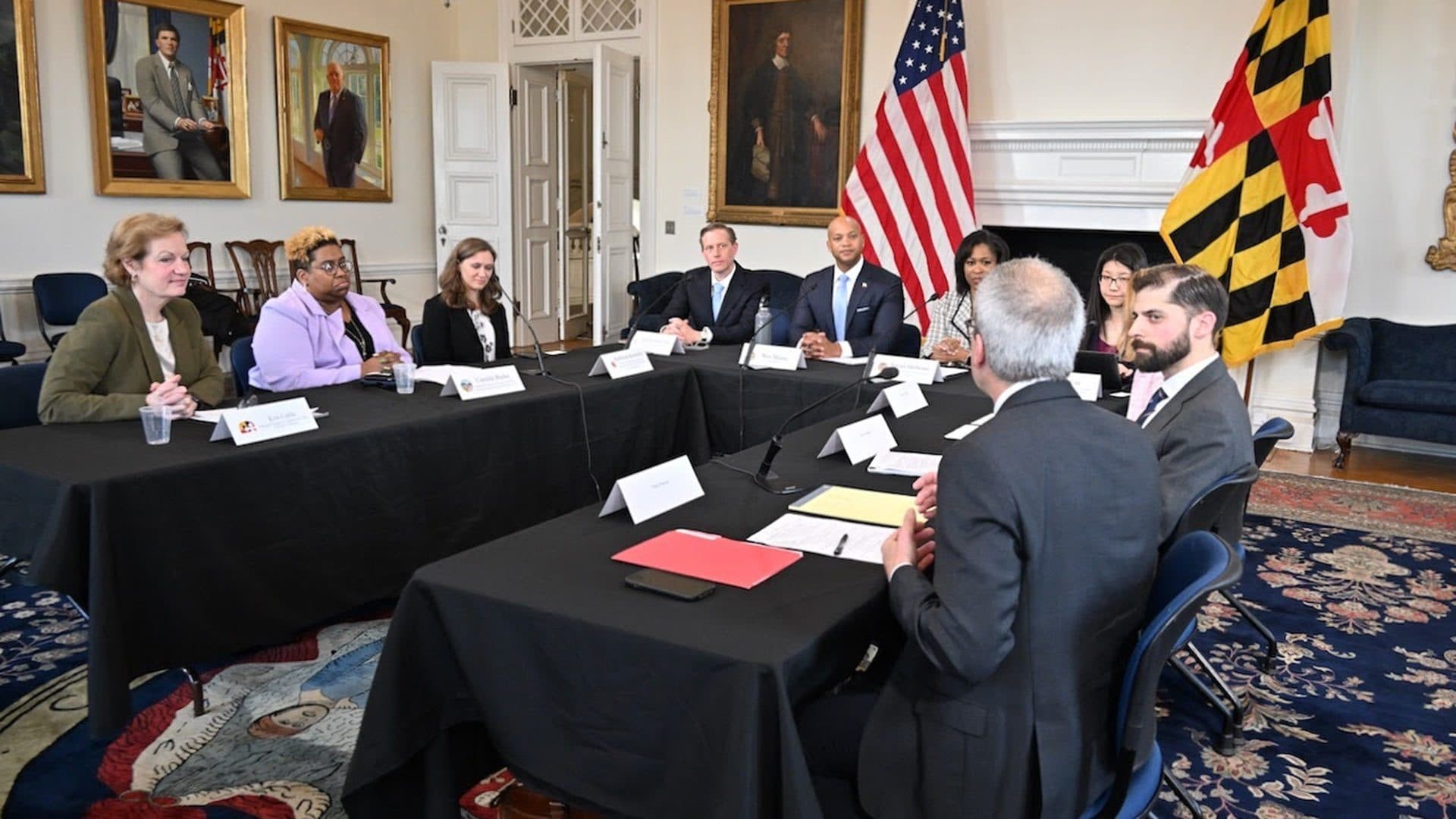The Maryland Department of the Environment (MDE) will partner with the Center for Global Sustainability (CGS) at the University of Maryland to lay out the state’s pathway for reaching its climate goals—the most ambitious targets in the nation, Gov. Wes Moore announced today.
“This new partnership is key not only to achieving our emissions reduction goals, but also to producing economic benefits and job growth across our state,” Moore said during a roundtable at the State House in Annapolis that included representatives from MDE, CGS, the League of Conservation Voters and others. “Maryland is leading the way and showing that we do not have to choose between economic growth and environmental sustainability.”
Maryland’s Climate Solutions Now Act of 2022 calls for a 60% reduction in greenhouse gas emissions by 2031, which will require a number of measures from the state, including mandating that electric companies increase gross energy savings, developing energy efficiency and emissions reduction requirements for certain buildings; establishing zero-emission vehicle requirements in the state fleet and establishing an electric school bus pilot program.
In addition, annual statewide greenhouse gas emissions must fall to net zero by 2045, meaning they are balanced out by removals of greenhouse gasses from the atmosphere, including through the carbon sequestration effects of trees and soils.
The analysis and framework CGS are helping to create will outline the emissions reductions potential from multiple sectors and cover all harmful greenhouse gas emissions—including methane, which rises from landfills, leaky gas pipes and livestock, and hydrofluorocarbons used in building climate control systems. Critically, the framework will set the stage for actors at all levels to engage in thoughtful climate leadership to improve Maryland’s air and environment and help transition the most vulnerable communities to clean energy.
“Our experts will work directly with our state partners and other stakeholders to understand the current climate trajectory based on state and local policies, federal action, and market forces,” said Nathan Hultman, CGS director and a professor in UMD’s School of Public Policy. “Our analysis will identify new and feasible state policies to help reduce the necessary emissions while improving economic, public and environmental health for all.”
A CGS-led report will provide alternative illustrative policy pathways to meet the state’s goals and will be open for public feedback in June, and MDE will solicit comments through open forums. Following the comment period, a final policy framework and plan will be delivered at the end of 2023.
“These ambitious plans must not only include solutions to achieve our goals but must also lay a foundation for just and equitable implementation,” said Department of the Environment Secretary Serena McIlwain. “Marylanders’ voices are critical in helping the plan deliver emissions reductions and realize economic benefits across the state.”

